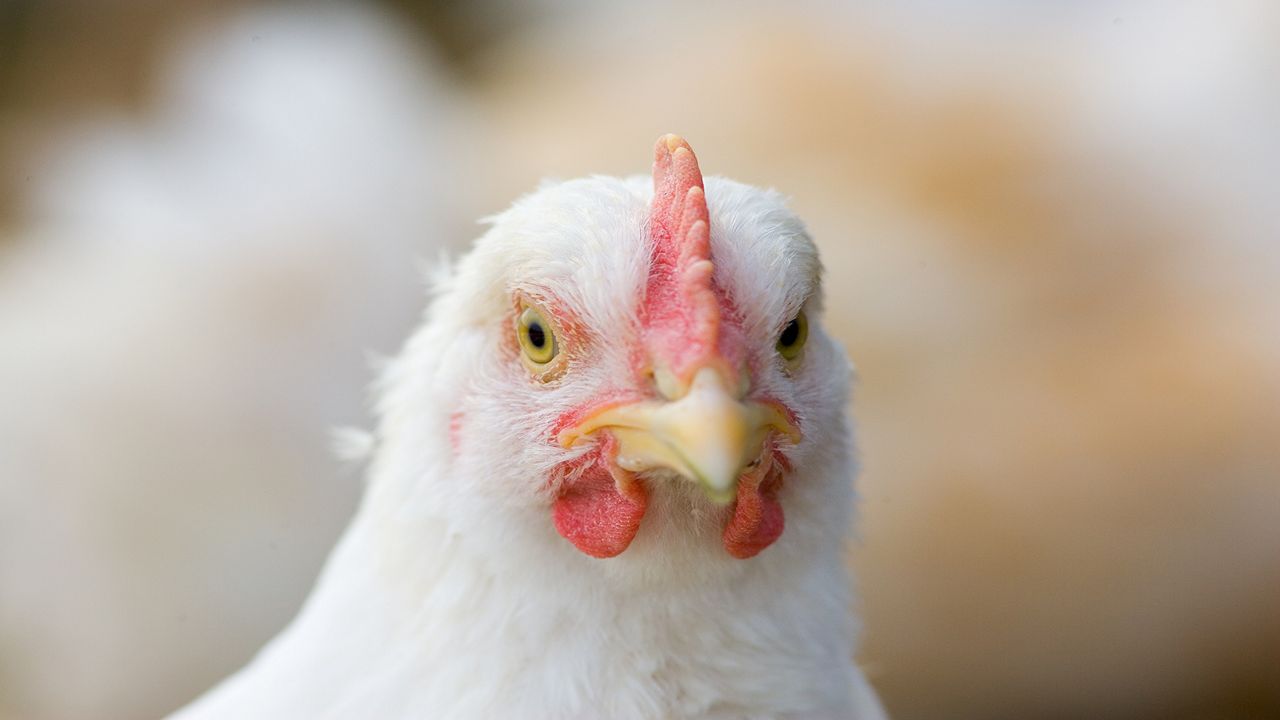FRANKFORT, Ky. — Avian flu has been found in a flock of commercial broiler chickens in Kentucky near the Tennessee border.
Kentucky State Veterinarian Dr. Katie Flynn says the United States Department of Agriculture’s (USDA) ANimal and Plant Health Inspection Service (APHIS) confirmed the strain which has the potential to kill many birds. They found the confirmed case of H5N1 avian influenza in Fulton County. The state is waiting on lab confirmation of another suspected case in Webster County.
“The Kentucky Department of Agriculture is working closely with animal health officials at both the federal and state government to contain these incidents of avian influenza,” Agriculture Commissioner Ryan Quarles said in a statement. “Protecting the health of livestock and poultry in the commonwealth is a top priority of the Kentucky Department of Agriculture. We encourage everyone to visit kyagr.com/HPAI for additional information and updates as they come.”
On Feb. 11, a commercial chicken operation in Fulton County told the Kentucky Department of Agriculture about an increase in poultry deaths. Lab testing the Breathitt Veterinary Center and the USDA’s National Veterinary Services Laboratory confirmed highly pathogenic avian influenza (HPAI)
“We are working diligently to prevent this virus from spreading to other poultry premises,” Dr. Flynn said. “We have activated our Avian Influenza response plan and are in active communication with state, federal, and industry partners.”
Avian influenza does not pose a food safety risk; poultry and eggs are safe to eat when handled and cooked properly. There is also no risk to the food supply, but the statement from the state says birds from the infected flocks will not enter the food system. They also stress they have found no human cases of avian influenza viruses in the United States.
The affected operations have been quarantined. Federal and state agencies are working on additional testing in the area and surveillance to gather more information. The surveillance zone in Fulton County dips into Obion County in Tennessee due to Fulton County’s location on the border of the state line. The Tennessee Department of Agriculture (TDA) is coordinating with the Kentucky Department of Agriculture on the incident response.
“It’s critical that we work together to prevent the spread of this virus,” Tennessee State Veterinarian Dr. Samantha Beaty said. “We will begin testing and surveillance of commercial and backyard flocks within the surveillance zone immediately. In Tennessee, poultry owners should report unexpected deaths to the State Vet’s office.”
Last week, Indiana reported a case of HPAI in a commercial turkey flock in Dubois County. It was the first case found in a commercial flock in the United States since 2020. The USDA also announced it has found the virus in a backyard flock of mixed species birds in Fauquier County, Virginia. Low pathogenic avian influenza was last identified in commercial flocks in Kentucky in 2017.
Regardless if you have a small backyard poultry operation or are a large commercial producer, you should review the biosecurity activities to make sure the birds are healthy. APHIS has information to help poultry producers with biosecurity and other measures at Defend The Flock program.
According to the Kentucky Department of Agriculture, Kentucky’s poultry industry ranks seventh in the nation for broiler production. In 2020, Kentucky’s production of boilers and eggs brought in an economic impact of $856 million.



